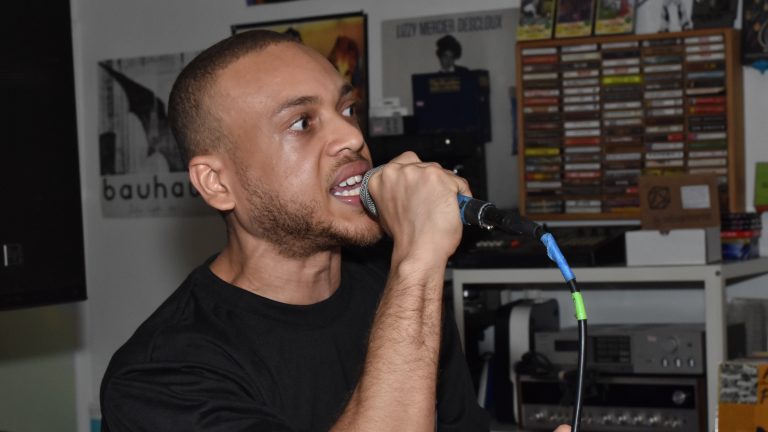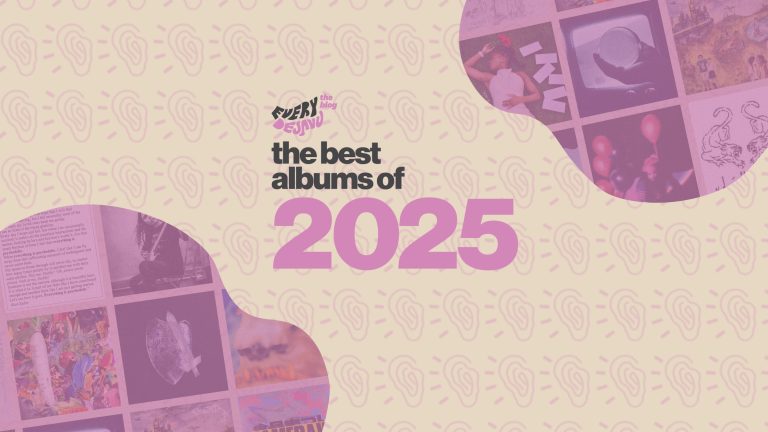Berlin-based record label P•A•N is post-music or even modern art music. Looked upon as a beacon of avant-garde/deconstructed club music, P•A•N is a label proving time and time again there is always something new under the sun for the most curious ear—music so innovative and thought-provoking it makes you question what you thought music was. Their released projects turn music into experiences, rather than just something to hear and cast aside. Now joining the ranks is Tongue in the Mind, a New York-based psychedelic spoken word/avant-rock supergroup made of DJ, writer, and musician Juliana Huxtable, multi-instrumentalist Jealous Orgasm, and producer Via App.
On Tongue in the Mind’s debut self-titled EP’s opener, “Pretty Canary,” vocalist Huxtable emerges from underneath a static sound wave. The track redefines the meaning of acid rock by blending hard psychedelic rock, poetry, and the member’s background of experimental electronica. It’s “surrealist punk” where genres meld together until the only way you can tell which is what is through the bubbling fester of what once was. The song collapses from tense, drum-heavy tribal punk into razor-blade glam sleaze near the end. Just as you thought you had a hold on where it would end and what it became, the track melts into acid punk’s discombobulated end. “Free Sex” then takes an even wilder direction, blending thrash metal with electroclash synths and drum n bass rhythm while exploring lust and passion.
In the epic “Key and String,” Huxtable once again tickles the imaginative end of your mind. “I knew I caught your eye / For a moment you closed them and let your mind slide,” she states with the haughty accent of a ‘70s British glam rocker over warping synths. Poetic cadences and razor-sharp guitar licks coalesce to sound like ‘90s Manchester affected heavily and tragically by a heavy drug bender. As such, “Plasmatic Yearning (For the Horizon’s Kiss Goodnight)” acts as the EP’s comedown moment—the moment where “crashing” truly feels like a crash down to planet Earth. Chaos of sound, sounds of failing to catch air, and the blending of synths and guitar fight for attention before becoming a hot acid-soaked juxtaposition of all you still have yet to understand after the record has finished.
Tongue in the Mind, the band and the album, feels like a one-time half-hour exploration of how far psychedelic rock (or acid rock) can truly be taken, especially when tossing in other rock and electronic music elements. Most vintage psychedelic rock songs make you feel like you landed in an upside-down world and your position within it is the only weird one. All one can say Tongue in the Mind transcends the idea of what psychedelic music—if not music in general—usually sounds like.





